Is your Frigidaire refrigerator constantly playing a game of “on and off”? Frustrating, isn’t it?
If you’re wondering why your refrigerator keeps turning off and on, you’re in the right place.
In this article, we’ll uncover the possible causes behind this perplexing issue and provide you with practical solutions to put an end to the cycling problem.
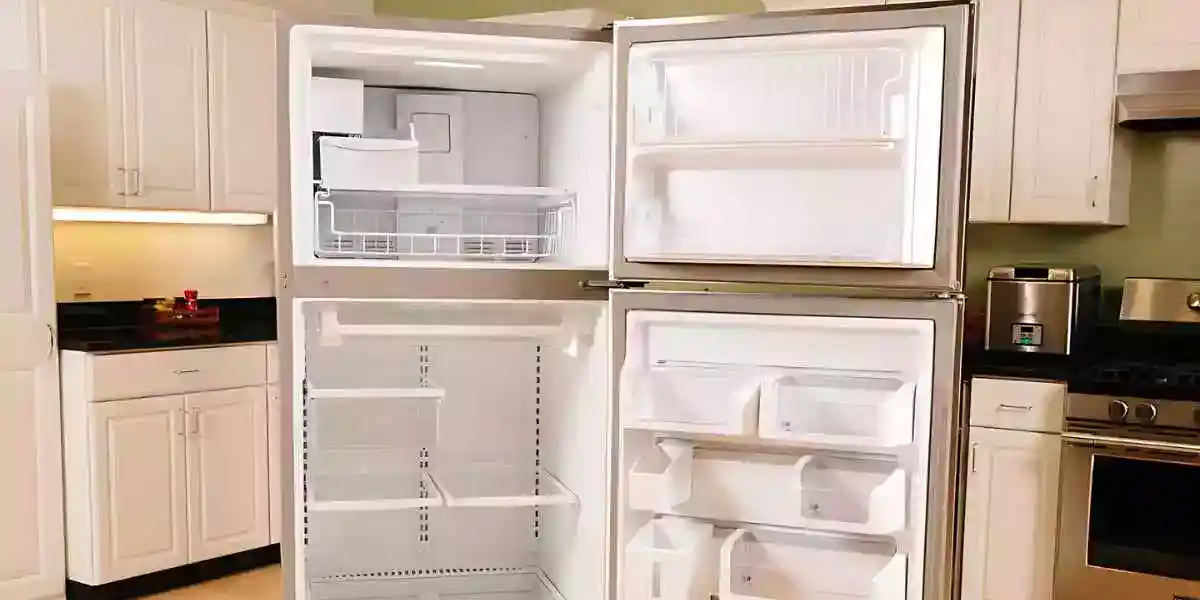
Why Does My Frigidaire Refrigerator Keep Turning Off and On?
Your Frigidaire refrigerator may be turning off and on due to faulty electrical components or a malfunctioning thermostat.
These issues can disrupt the cooling cycle and affect its performance.
Potential Causes of the Cycling Issue in Frigidaire Refrigerators
When your Frigidaire refrigerator keeps turning off and on, it can be frustrating and leave you wondering what’s causing this perplexing issue.
Several potential causes could be behind this cycling problem:
1. Faulty Thermostat:
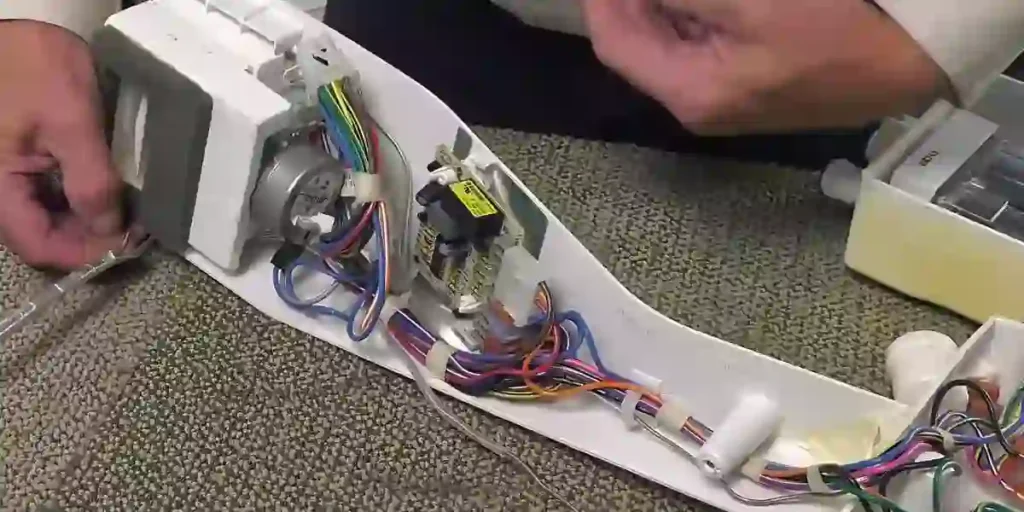
A malfunctioning thermostat may incorrectly sense the temperature inside the refrigerator, leading to frequent cycling.
It can cause the compressor to turn on and off more frequently than necessary.
2. Overheating Condenser Coils:
Accumulated dirt, dust, or debris on the condenser coils can impede proper heat dissipation, resulting in the refrigerator working harder to maintain the desired temperature.
This increased strain on the system can lead to frequent cycling.
3. Defective Start Relay:
The start relay is responsible for initiating the compressor’s operation. If it becomes faulty or worn out, it may cause the refrigerator to cycle on and off irregularly.
4. Damaged Compressor:

A faulty compressor can cause the refrigerator to cycle excessively. Common issues include electrical problems, worn-out components, or internal leaks.
A damaged compressor will need professional attention to diagnose and resolve the issue.
5. Inadequate Air Circulation:
Poor airflow due to blocked vents or improper arrangement of food items inside the refrigerator can disrupt the cooling process.
The refrigerator may turn on and off more frequently to compensate for the compromised airflow.
6. Power Supply Issues:
An unstable or fluctuating power supply, such as voltage spikes or drops, can impact the refrigerator’s operation.
In such cases, the refrigerator may cycle frequently as it tries to adapt to the inconsistent power source.
The Impact of Frequent Cycling on the Refrigerator’s Performance
While cycling is a normal function of refrigeration systems, excessive cycling can lead to various issues that may affect its overall performance.
1. Understanding the Reasons for Frequent Cycling
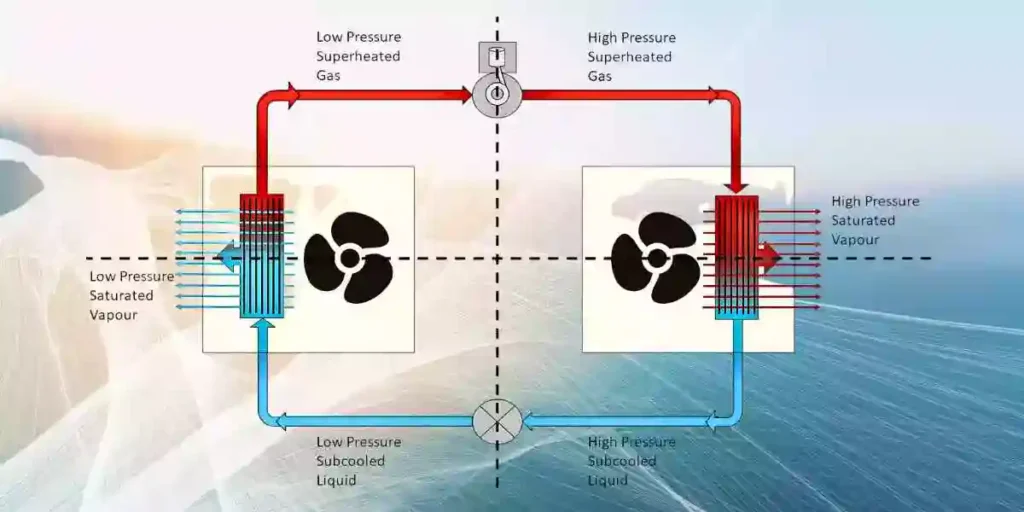
Frequent cycling can occur due to several factors. One common reason is improper temperature settings. If the thermostat is set too low, the refrigerator will cycle more often to maintain the desired temperature.
Similarly, a high ambient temperature in the surrounding environment can also trigger increased cycling.
Additionally, a malfunctioning component, such as a faulty thermostat or compressor relay, can cause the refrigerator to cycle more frequently than necessary.
2. Identifying the Consequences of Frequent Cycling
Frequent cycling can have adverse effects on your refrigerator’s performance.
Firstly, it can lead to excessive wear and tear on the compressor, which is the heart of the cooling system.
The more frequently the compressor cycles, the more strain it experiences, potentially shortening its lifespan.
Moreover, frequent cycling can result in temperature fluctuations inside the refrigerator, affecting the freshness and longevity of your stored food items.
This can lead to spoilage and wastage, ultimately impacting your grocery budget.
3. Mitigating the Impact of Frequent Cycling
To minimize the impact of frequent cycling on your refrigerator’s performance, follow these steps:
- Optimize Temperature Settings
- Clean the Condenser Coils
- Check the Door Seals
- Service and Maintenance
Troubleshooting Steps: How to Fix a Frigidaire Refrigerator that Keeps Turning Off and On
Step 1: Check the Power Supply
The first step in troubleshooting a Frigidaire refrigerator that keeps turning off and on is to ensure that it is receiving a consistent and adequate power supply.
Start by verifying that the power cord is securely plugged into a functioning electrical outlet.
If the outlet seems to be working, try plugging in another device to confirm its functionality.
Next, inspect the power cord for any signs of damage or fraying. If you notice any issues, replace the cord with a new one.
Additionally, examine the circuit breaker or fuse box to see if a circuit has tripped or a fuse has blown. Reset the circuit breaker or replace the fuse if necessary.
Step 2: Clean the Condenser Coils
The condenser coils are responsible for dissipating heat from the refrigerator. If they are dirty or clogged, it can cause the refrigerator to overheat and shut off intermittently.
To clean the condenser coils, start by unplugging the refrigerator from the power source.
Locate the condenser coils, which are usually located at the back of the refrigerator or beneath it.
Use a vacuum cleaner with a brush attachment or a soft brush to gently remove the dust and debris from the coils.
Take care not to bend or damage the coils during the cleaning process.
Step 3: Check the Door Seals
Faulty door seals can lead to temperature fluctuations inside the refrigerator, causing it to cycle on and off frequently.
Inspect the door seals for any signs of damage, such as cracks, tears, or looseness. Close the refrigerator door on a dollar bill or a sheet of paper, and try to pull it out.
If it slides out easily, the door seal may need to be replaced.
To replace the door seal, refer to the refrigerator’s user manual for specific instructions.
In most cases, you will need to remove the old seal and install the new one using a screwdriver or a similar tool.
Step 4: Adjust the Temperature Settings

In some cases, incorrect temperature settings can cause a Frigidaire refrigerator to cycle on and off frequently.
Access the temperature control panel, usually located inside the refrigerator compartment.
Adjust the temperature settings to the manufacturer’s recommended levels. Wait for a few hours to see if the refrigerator stops turning off and on excessively.
Step 5: Ensure Proper Air Circulation
A lack of proper air circulation can also lead to a refrigerator that keeps turning off and on.
Check if there are any obstructions around the refrigerator, such as furniture or objects blocking the vents.
Rearrange the surroundings to allow for adequate airflow around the appliance.
Additionally, make sure the refrigerator is not placed too close to a heat source, such as a stove or a radiator, as it can affect its performance. Maintain a minimum distance as specified in the user manual.
Step 6: Call for Professional Assistance
If you have followed all the previous steps and the Frigidaire refrigerator still continues to turn off and on, it is recommended to seek professional assistance.
Contact Frigidaire’s customer service or a certified technician to diagnose and repair the issue.
They have the expertise and tools to identify any underlying problems and provide a suitable solution.
Remember to provide them with all the relevant information, such as the model number, serial number, and a detailed description of the issue.
This will help them in troubleshooting and resolve the problem more efficiently.
Factors That Can Influence the Cycling Behavior of a Frigidaire Refrigerator
By being aware of these influential factors, you can optimize your refrigerator’s functioning and ensure it operates smoothly.
1. Ambient Temperature:
If the ambient temperature is high, the refrigerator will need to work harder to maintain the desired temperature inside.
This increased workload can lead to more frequent cycling as the refrigerator attempts to compensate for the external heat.
Conversely, in colder environments, the refrigerator may cycle less frequently as it encounters less heat to remove.
Therefore, it is important to place your refrigerator away from direct sunlight and heat sources to help it operate optimally.
2. Door Usage:
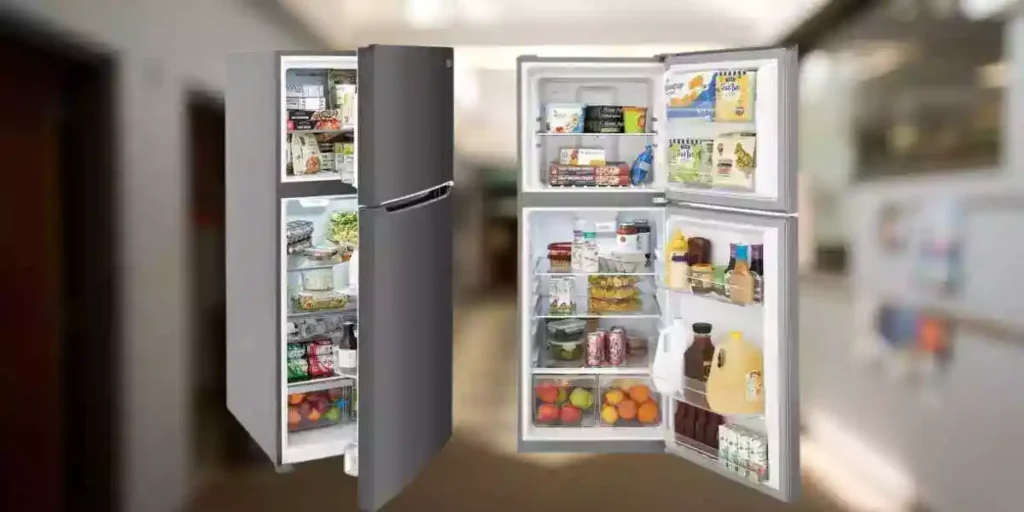
The frequency and duration of door openings can significantly impact the cycling behavior of your Frigidaire refrigerator.
Each time you open the refrigerator door, warm air from the room enters, and the cold air inside escapes.
This influx of warm air triggers the refrigerator’s cooling system to compensate and restore the internal temperature.
If the door is opened frequently or left open for extended periods, the refrigerator will cycle more often to maintain the desired temperature.
3. Refrigerator Loading:
An overcrowded refrigerator can obstruct proper airflow and disrupt the cooling process, leading to more frequent cycling.
Conversely, an underloaded refrigerator may cycle less frequently as it has less thermal mass to cool.
When loading your refrigerator, ensure that there is adequate space between items for proper air circulation.
Additionally, avoid blocking the air vents inside the refrigerator to allow for efficient cooling.
4. Maintenance and Cleanliness:
Over time, dust, dirt, and debris can accumulate on the condenser coils, inhibiting heat dissipation and forcing the refrigerator to cycle more frequently.
To prevent this, it is important to clean the condenser coils periodically, following the manufacturer’s instructions.
Additionally, check the refrigerator’s door seals for any cracks or gaps that may allow warm air to enter.
Damaged seals can lead to increased cycling as the refrigerator works harder to maintain the desired temperature.
5. Defrosting:
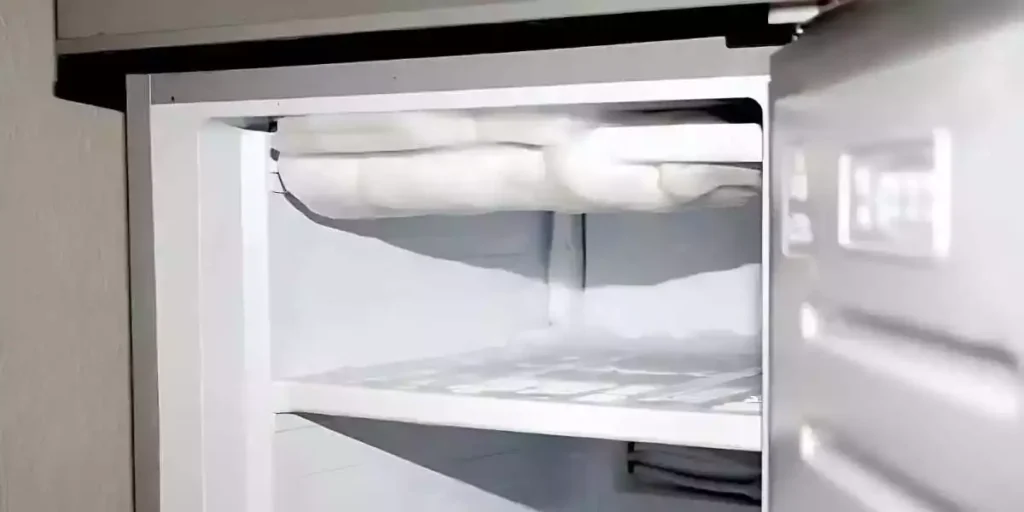
Ice buildup on the evaporator coils can hinder proper cooling, causing the refrigerator to cycle more frequently.
It is essential to defrost your refrigerator whenever a significant amount of ice has accumulated.
Follow the manufacturer’s guidelines on defrosting frequency to ensure optimal performance.
Regular defrosting will prevent excessive cycling, help maintain energy efficiency, and prolong the lifespan of your refrigerator.
FAQs
1. Can A Power Surge Cause My Frigidaire Refrigerator To Turn Off And On?
Yes, power surges can disrupt the electrical components of your refrigerator and cause it to cycle on and off.
Consider using a surge protector or contacting an electrician to address the power supply issue.
2. Is There A Chance That The Refrigerator’s Temperature Settings Are Causing The Cycling?
In some cases, incorrect temperature settings can lead to frequent cycling. Ensure that the temperature controls are set correctly based on the manufacturer’s recommendations.
3. Could A Malfunctioning Door Switch Be Causing The Refrigerator To Turn Off And On?
Yes, a malfunctioning door switch can disrupt the refrigerator’s operation and lead to cycling. Make sure the door switch is functioning properly and replace it if necessary.
4. Should I Seek Professional Assistance To Diagnose And Fix The Cycling Issue With My Frigidaire Refrigerator?
If basic troubleshooting steps do not resolve the problem, it is recommended to contact a professional appliance technician. They have the expertise to diagnose and repair complex issues with refrigerators, ensuring a proper fix.
Conclusion
Don’t let a constantly cycling Frigidaire refrigerator disrupt your kitchen routine. Ensure proper power supply, clean the coils, and check temperature settings.
If the issue persists, reach out to a professional technician for a swift and efficient resolution.
Enjoy uninterrupted cooling and peace of mind with your Frigidaire refrigerator, keeping your perishables fresh and your kitchen running smoothly.
